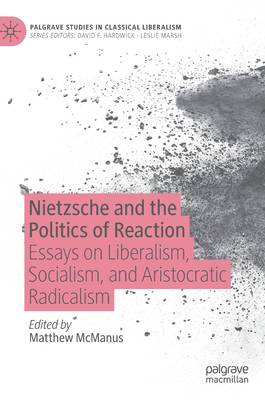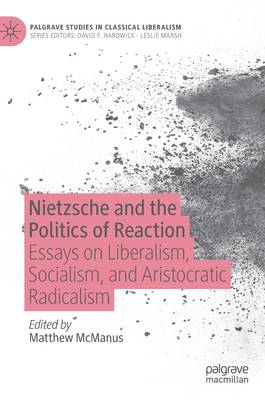
Je cadeautjes zeker op tijd in huis hebben voor de feestdagen? Kom langs in onze winkels en vind het perfecte geschenk!
- Afhalen na 1 uur in een winkel met voorraad
- Gratis thuislevering in België vanaf € 30
- Ruim aanbod met 7 miljoen producten
Je cadeautjes zeker op tijd in huis hebben voor de feestdagen? Kom langs in onze winkels en vind het perfecte geschenk!
- Afhalen na 1 uur in een winkel met voorraad
- Gratis thuislevering in België vanaf € 30
- Ruim aanbod met 7 miljoen producten
Zoeken
Nietzsche and the Politics of Reaction
Essays on Liberalism, Socialism, and Aristocratic Radicalism
€ 305,45
+ 610 punten
Omschrijving
This book is intended as a major interdisciplinary contribution to the study of Nietzsche's thought in particular, and the political right more generally. Historically the assessment of Nietzsche's politics has ranged from denouncing him as a forerunner to Nazism to claiming he effectively did not have articulated political convictions. During the latter half of the 20th century he surprisingly became a major theoretical influence on a variety of post-structuralist radical critics, who saw in his perspectivism and genealogy of power useful tools to critique existent structures of domination. This collection of essays reframes the debate by looking at Nietzsche's constructive political project defending aristocratic values from the levelling influence of the herd and its liberal, socialist, and democratic spokesmen. The essays will also explore how this defense of aristocratic values continues to have an influence on the political right, inspiring moderates like Jordan Peterson and farright authors and activists like Aleksandr Dugin and Steve Bannon.
Specificaties
Betrokkenen
- Uitgeverij:
Inhoud
- Aantal bladzijden:
- 386
- Taal:
- Engels
- Reeks:
Eigenschappen
- Productcode (EAN):
- 9783031136344
- Verschijningsdatum:
- 2/01/2023
- Uitvoering:
- Hardcover
- Formaat:
- Genaaid
- Afmetingen:
- 148 mm x 210 mm
- Gewicht:
- 625 g

Alleen bij Standaard Boekhandel
+ 610 punten op je klantenkaart van Standaard Boekhandel
Beoordelingen
We publiceren alleen reviews die voldoen aan de voorwaarden voor reviews. Bekijk onze voorwaarden voor reviews.








